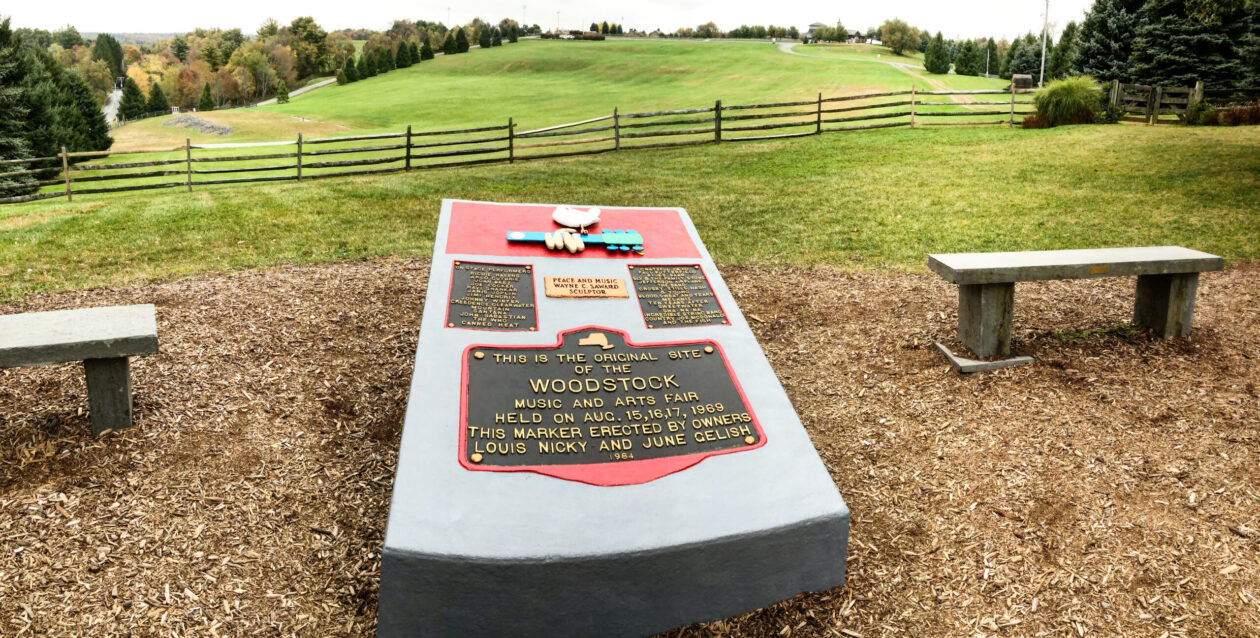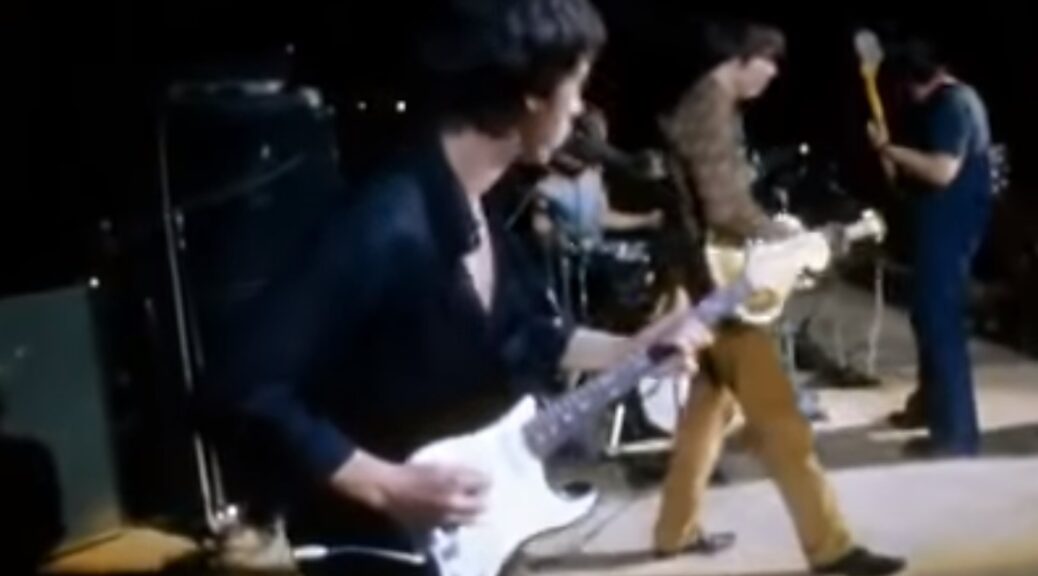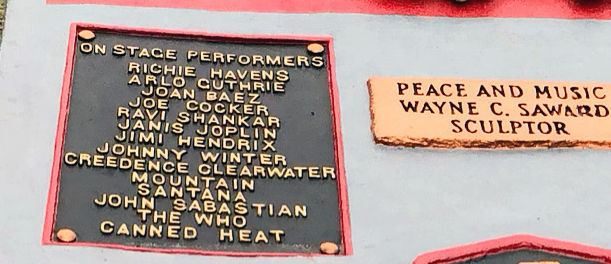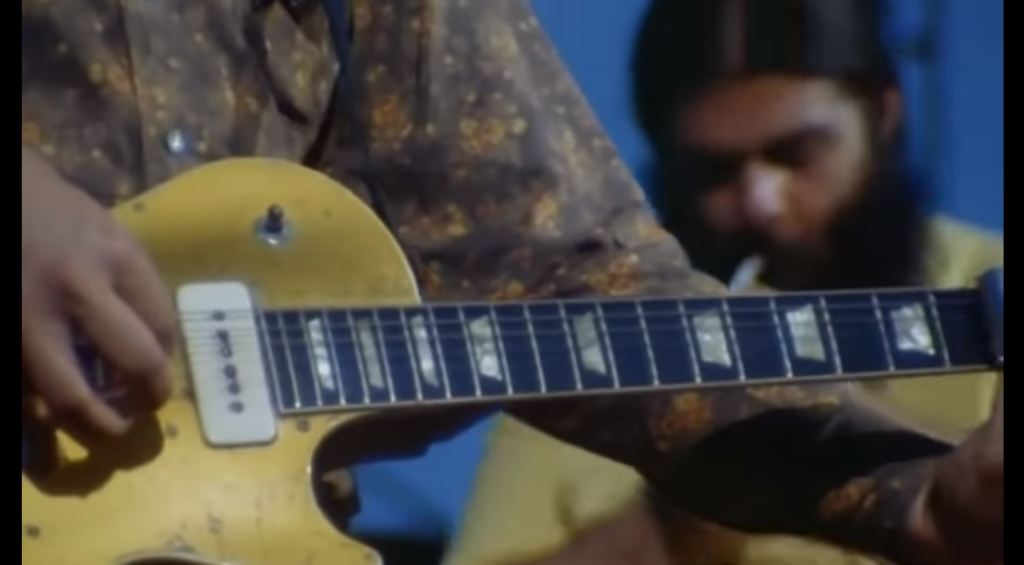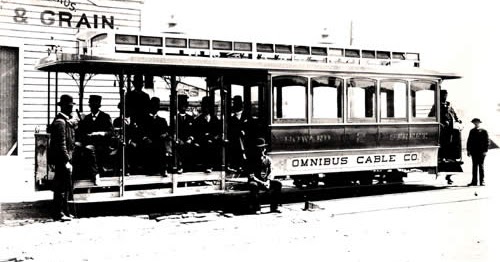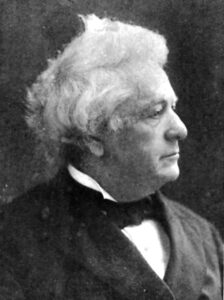Canned Heat Woodstock
Canned Heat is on the Monument. Canned Heat is in the original movie release. Canned Heat is on the original soundtrack. They certainly deserved the triple.
It was around 7:30 PM when Chip Monck introduced Canned Heat. The 8 PM sunset ended a warm sunny day. The band would leave the stage about an hour and fifteen minutes later to cheers and applause.
Personnel:
- Alan “Blind Owl” Wilson: guitar, harmonica, vocals
- Bob “The Bear” Hite: vocals, harmonica
- Harvey “The Snake” Mandel: guitar
- Larry “The Mole” Taylor: bass
- Adolpho “Fito” de la Parra: drums
Setlist:
- I’m Her Man
- Going Up the Country
- A Change Is Gonna Come / Leaving This Town
- I Know My Baby
- Woodstock Boogie
- On the Road Again
Canned Heat Woodstock
I’m Her Man
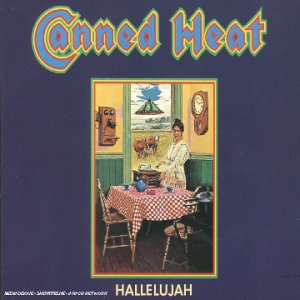
I’m Her Man had appeared on their recently released Hallelujah album. Bob Hite wrote the song.
I found love sure is good to me
You know a man needs a woman though to keep him company
It feels good not to be alone
Oh so good not to be alone
I’m gonna make sure not to lose my happy home
Why i sure don’t know
Never gonna let her go
I said love is hard to understand
But it sure feels good to know that I’m her man
Why i sure don’t know
Never gonna let her go
Canned Heat Woodstock
Going Up the Country
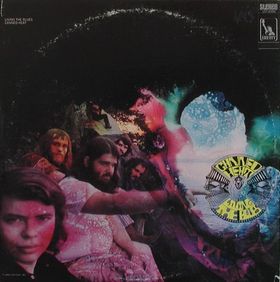
Going Up the Country was on their Living the Blues album, their third and a double alum. Alan Wilson wrote the song.
Before starting it, Bob Hite, as many other performers had, commented on the whole scene, mentioned a personal issue, and introduced a new band member.
“You know, this is the most outrageous spectacle I’ve ever witnessed, ever. There’s only one thing I wish: I sure gotta’ pee. And there ain’t nowhere to go. We’re gonna get one out here on the guitar and do a little Going Up the Country and I’d also like to take this time to introduce you to our newest member. So now being official that Henry Vestine has left Canned Heat to form a group called Sun, we now have playing lead guitar Harvey Mandell…so everything’s together.”
I’m goin’ up the country, baby don’t you want to go?
I’m goin’ to some place, I’ve never been before
I’m goin’ I’m goin’ where the water tastes like wine
I’m goin’ where the water tastes like wine
We can jump in the water, stay drunk all the time
I’m gonna leave this city, got to get away
I’m gonna leave this city, got to get away
All this fussin’ and fightin’ man, you know I sure can’t stay
So baby pack your leavin’ trunk
You know we’ve got to leave today
Just exactly where we’re goin’ I cannot say
But we might even leave the U.S.A.
It’s a brand new game, that I want to play
‘Cause you got a home as long as I’ve got mine
Canned Heat Woodstock
A Change Is Gonna Come/Leaving This Town
There is no studio recording of “A Change Is Gonna Come.”
Bob Hite comments before, “Nothing like suckin’ on an orange. Kinda’ something neat about it. Reminds me of something…I do believe it’s a lovely evening for a boogie.”
During the song a young man from the audience climbs on stage but instead Hite allows him to stay. The kid grabs the pack of Marlboro cigarettes from Hite’s tee-shirt while they hug each other. They share a cigarette. It was a perfect Woodstock moment.
I said I believe…
Yeah ’bout a change is gonna come
I said I believe…
Yeah people the change… will surely come
We all have good peace of mind
Lord, I free they will surely surely come
Yeah, I believe in the morning
I believe I go ah back home
Well, I’ll tell I believe I’m gonna get up in the morning
Yeah, people ah people, I’m gonna go back home
Well, now I gotta find my little mama
You know I gotta have some gratitude beyond
Well…I’m standing sown at he crossroads,
My friend began to shout
Well, ah it’s all I’ve got my self a friend
Dolla I try… ah surely done
Well, when you’ve got yourself a good friend
You are the luckiest man on earth
I say you got yourself a good friend
Yeah now do know you’re the luckiest man on earth
‘Couse you’ve got love in your heart
Lord God’s good… all is winin’ call
Oh you gotta cool down
Well, I got to go an’ to when
When your troubles through to down mile
I said what you’re gonna do babe
Yeah time when your troubles show you to the line mile
Well, now you take youself a mouth full of sugar
You drink yourself a put of bottle turpentine
Well I believe in the morning yeah
‘Tou for it moun too tough
I said I believe in the big time
Lord roar the moan too tough
Well, I gotta find my little ride’
You know this time I’m goin’ back home
Well, I believe in this time on
Lord I wont be back for long
Well, I believe in this time …
Lord people I wont be back… go home
Well, now I got myself a grand of nothing
Child don’t you know it’s shocking I’ve been told
Canned Heat Woodstock
Rollin’ Blues
From the Woodstock Fandom site: “Rollin’ Blues”, originally written by John Lee Hooker, is a version of the Blues traditional “Rollin’ and Tumblin.'” Canned Heat recorded their version of “Rollin’ and Tumblin'” (which has hardly any similarities to “Rollin’ Blues”) on their first self-titled album. They also recorded and performed with Hooker, so it is not unusual that they played one of “his” songs at the festival.
Canned Heat Woodstock
Woodstock Boogie
Bob Hite again says the guitarists need some time to tune and that Sharon’s dad is looking for her backstage.
Alan Wilson says that new member Harvey continues the Canned Heat tradition of extensive re-tuning.
Again from the Woodstock Fandom site: The song “Woodstock Boogie” is basically an almost 30-minute jam, including a drum solo. On their album Boogie With Canned Heat the song is called “Fried Hockey Boogie.“
Canned Heat Woodstock
On the Road Again
Before their encore, Hite explains how difficult the previous two weeks had been, that they even thought that the band might end.
Chip Monck has pretty much lost his patience with the tower climbers. He asked Hite if he could interrupt to tell them, “Get the fuck down!”
“On the Road Again” first appeared on their second album, Boogie with Canned Heat, in January 1968; when an edited version was released as a single in April 1968, “On the Road Again” became Canned Heat’s first record chart hit and one of their best-known songs.
But I’m out on the road again
I’m on the road again
Well, I’m so tired of crying
But I’m out on the road again
I’m on the road again
Just to call my special friend
Out in the rain and snow
In the rain and snow
You know the first time I traveled
Out in the rain and snow
In the rain and snow
Not even no place to go
When I was quite young
When I was quite young
And my dear mother left me
When I was quite young
When I was quite young
Please don’t you cry no more
Don’t you cry no more
Take a hint from me, mama
Please don’t you cry no more
Don’t you cry no more
Down the road I’m going
That long old lonesome road
All by myself
But I ain’t going down
That long old lonesome road
All by myself
Gonna carry somebody else
Canned Heat Woodstock
The next act is Mountain.
